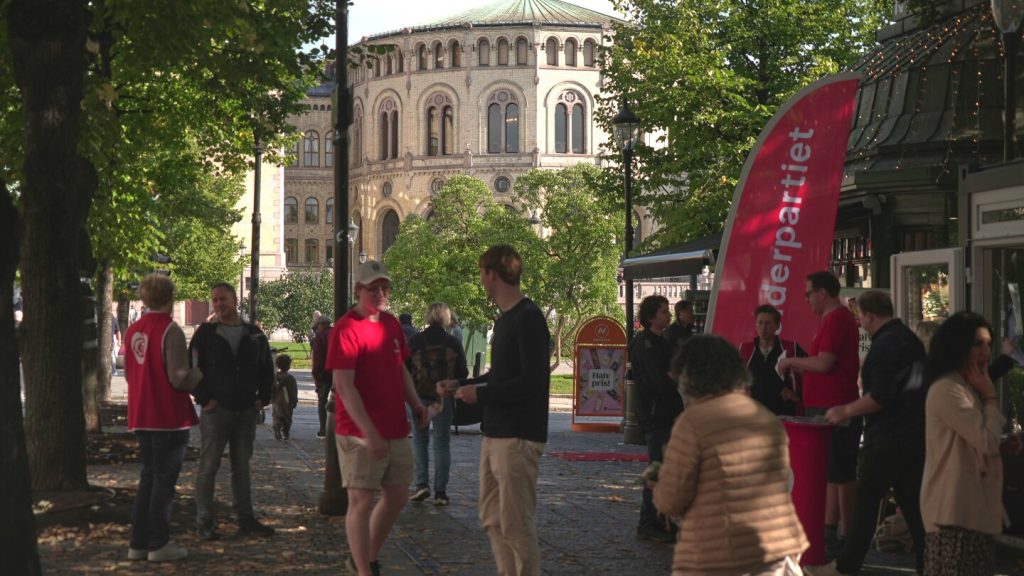STAVANGER, Norway (AP) — Wealthy Norway is conducting an election where inequality is a significant concern, alongside uncertainty regarding the future of a wealth tax that has been in place for over a century.
The outcome is expected to be tightly contested between the center-left coalition led by Prime Minister Jonas Gahr Støre, who has been in office for four years, and a right-wing coalition. Voting began on Sunday and will continue into Monday.
The Labor Party aims to maintain the wealth tax, a longstanding feature of Norwegian policy since 1892. In contrast, the Conservatives propose a reduction, while the Progress Party seeks its elimination, arguing that it discourages economic growth. Once considered a minor issue, the wealth tax has become central to the campaign.
Approximately 4.3 million out of Norway’s 5.6 million population can vote for the 169-member parliament, known as the Storting. Official results are due on Tuesday, typically leading to weeks of negotiations to form a coalition and decide on Cabinet roles.
A tax of up to 1.1% on high assets
The wealth tax imposes a rate of up to 1.1% on assets exceeding 1.76 million kroner (around $176,000), though deductions and exemptions exist. Labor argues that abolishing the tax would result in a deficit of 34 billion kroner ($3.3 billion) annually.
The Progress Party, leading the right-wing coalition, advocates for eliminating the wealth tax, claiming it harms the economy. Party leader Sylvie Listhaug states that it penalizes entrepreneurs with valuable equity stakes but little actual income, suggesting the funds from the tax could be better spent on fostering businesses and innovation.
Wealth distribution and political dynamics
Known as one of the wealthiest nations globally, Norway benefits from extensive oil and gas reserves and boasts a substantial sovereign wealth fund worth about 20 trillion kroner ($2 trillion). The country ranks sixth in GDP per capita, above the U.S., according to the International Monetary Fund.
Norway also stands out for its relatively equal wealth distribution, which has sparked debates over its use in international aid and investment during the campaign. Many, including the Labor Party, view the wealth tax as a crucial tool for reducing inequality.
Despite its affluence, some of the wealthiest Norwegians have left the country. After the government made changes to the tax in 2022, including removing certain exemptions, several ultra-wealthy individuals, including Kjell Inge Røkke, relocated to Switzerland. This has generated resentment among some citizens who feel wealthy individuals should contribute more to the welfare state.
The role of social media
The wealth tax has emerged as a focal point of the election, largely due to social media influencers who have highlighted the issue. Major party leaders have participated in a popular YouTube channel, Gutta (The Guys), which targets younger audiences opposed to the tax.
Many younger voters, some of whom are not directly affected by the tax, are rallying around it as a campaign priority. In Oslo, some voters expressed frustration that pressing issues like climate change were sidelined in favor of discussions about taxing wealth.



